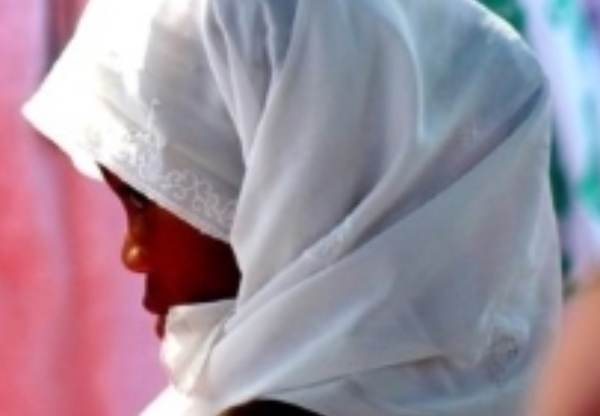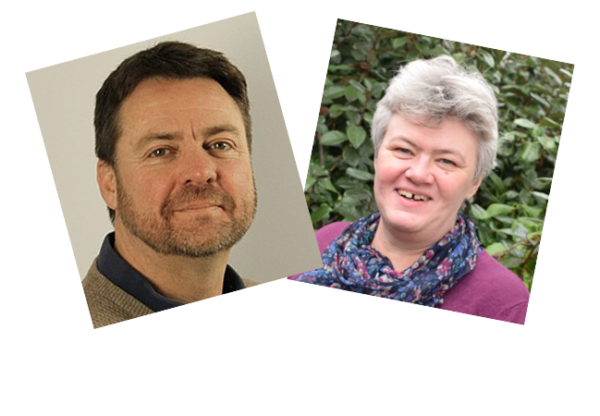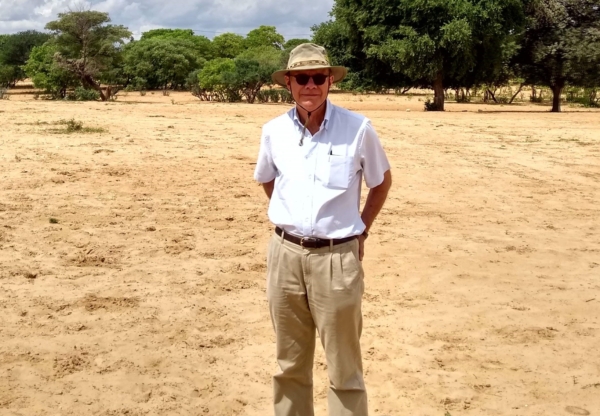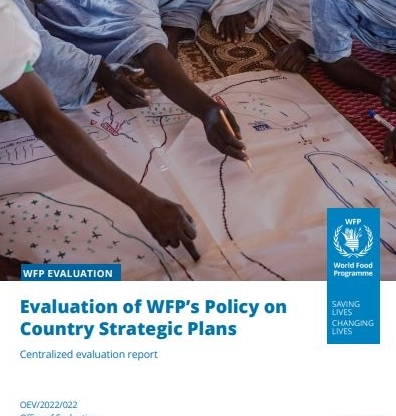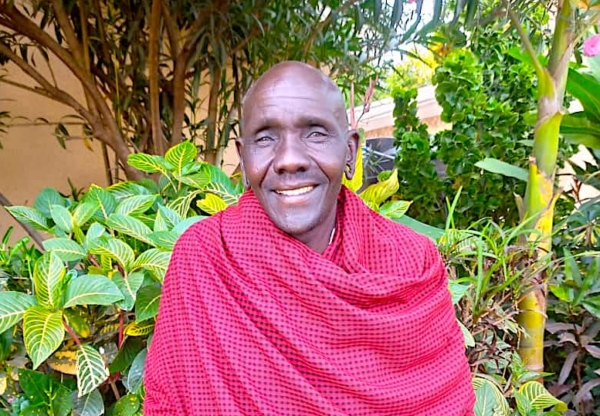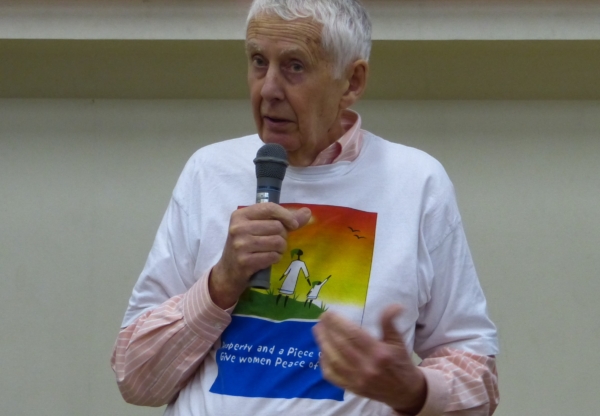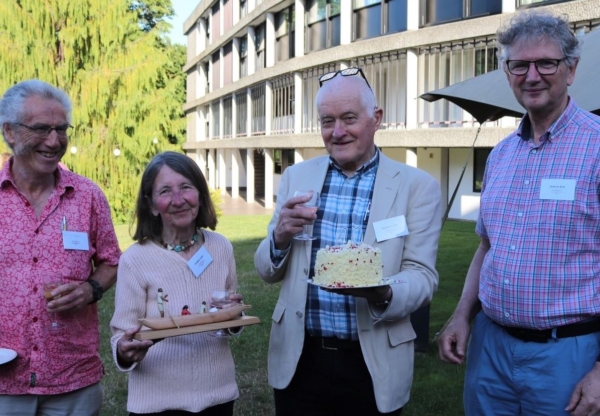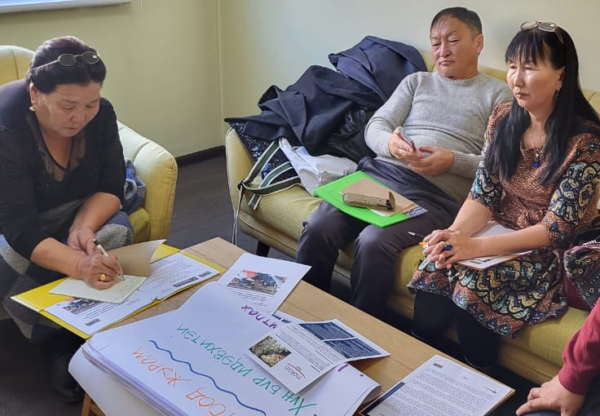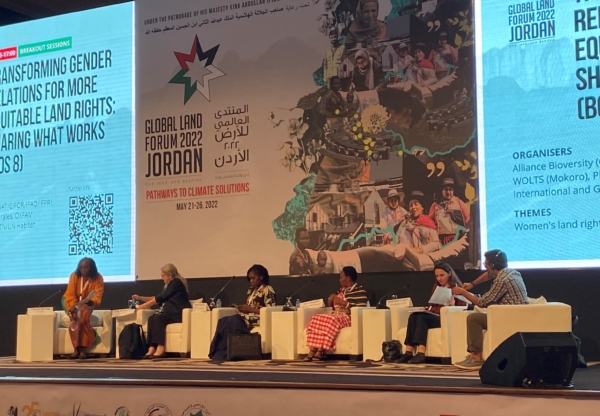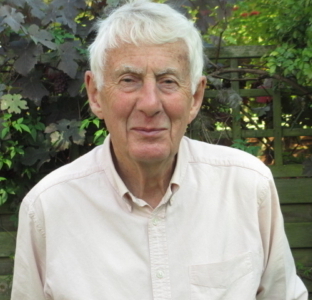Mokoro
Supporting international development
News
12 July 2024
Mokoro was proud to have been instrumental in producing the UNICEF policy brief (below) that would influence and inform public expenditure plans to combat child marriage. Concluding in 2022, this regional study across six African countries employed an analytical framework and methodology that explored the context around the ending child marriage (ECM) rates in the case study countries. Then, informed by the principal findings, UNICEF, development partners, and Governments were offered policy recommendations that sought to move ECM forward as a cross-cutting policy objective.
The policy brief document can be found in full by clicking here.
20 May 2024
Martin Tudge arrives at Mokoro, replacing Clare Tunbridge, who has been with Mokoro for over five years. Clare has built the company up, recruiting many of the current staff, and has kept the Mokoro operations running smoothly, cheerfully steering Mokoro through the choppy waters of Covid-19 with consummate ease. Although she will be much missed, she remains in the Oxford area, and we hope to continue to see her at Mokoro events.
Mokoro Director, and Chair of the Board, Elizabeth Hodson extends her personal gratitude to Clare, “‘Clare has done a terrific job. We’ve all learnt a tremendous amount from working with her and will be sad to see her go. We look forward to regular updates as she moves onto fresh challenges”.
Martin, who assumes the role of Head of Business Operations, has experience working overseas for various Development organisations. Notably, he has spent time in Sierra Leone, Sri Lanka, and South India, working in capacities ranging from Programme/Portfolio Manager to Country Director.
Clare will be missed by all at Mokoro, but Martin has settled very well, and arrives with a wealth of experience in the field, and a keenness to further Mokoro’s impact.
31 July 2023
It is with great sadness that we share the news that our highly respected and much loved friend and colleague, Stephen Turner, passed away on Thursday 27 July, after a courageous battle with cancer.
Stephen’s career spanned 45 years as an accomplished rural development specialist and astute consultant. He was as much at ease in village settings as he was with the most senior of individuals in governments and international agencies.
The southern countries of Africa were not only Stephen’s childhood home but where he lived and worked in his early and mid-career as an academic and senior consultant under the auspices of Vrije Universiteit, Amsterdam with several long-term secondments and numerous consultancies. He was a Principal Consultant with Mokoro for over 10 years; a Director since 2015; and served as Chair of Council (the Board of Mokoro) between 2017-2021. Stephen was highly regarded as a consummate team leader, perceptive evaluator and accomplished report writer. During the latter part of his career, he was much sought after for global and strategic evaluations, building a strong reputation with clients, including the World Food Programme (WFP) and International Union for Conservation of Nature (IUCN). In all that he undertook, his approach was deft, wise and humble. In a collection of messages shared with him in early July there are countless recognitions of his kindness, wit, patience and analytical skills, along with many acknowledgements of the professional impact he made on individuals and through his work.
Stephen was a man of Lesotho – a country he loved, lived in and where he met his wife. It was there he undertook his PhD fieldwork (SOAS, 1978) and had his first lecturing role at the National University. It seems fitting that his last assignment was for Lesotho too, visiting in late January 2023 as he led the Evaluation of the WFP Lesotho Country Strategic Plan on behalf of Mokoro. The leadership baton moved on to others as his illness took more of a grip, but right up to the week before he passed away he was at his desk contributing invaluable insights on the draft report.
As a much-loved friend and colleague, we will miss him hugely. A reflection from one of our number aptly concludes “We mourn the loss, too soon, of such a vibrant fellow traveller”.
Please get in touch with Zoe Driscoll (zdriscoll@mokoro.co.uk) if you would like to share any messages or stories you have of Stephen.
28 June 2023
The final report for a Mokoro evaluation of The World Food Programme’s (WFP) policy on Country Strategic Plans, led by Muriel Visser, has been published.
The evaluation assessed the quality and results of the policy, along with the factors that enabled or hindered progress. It covered the period from 2017 to 2022 and employed a theory-based, participatory, mixed-methods approach drawing on primary and secondary data sources. It included extensive desk reviews, an online global survey, interviews, focus group discussions, thematic round table discussions and workshops with WFP country offices, regional bureaux and relevant headquarters units.
The evaluation findings are organised around three dimensions of analysis: strategic repositioning; programming quality and results; and management, governance and accountability.
The Evaluation Report, as well as the WFP Management Response, a Summary Evaluation Report, and an infographic summarising the key findings, conclusions and recommendations are available for download here.
23 May 2023
Mokoro is pleased to announce publication of the latest collaborative paper from the WOLTS team – Confident Gender and Land Champions: Building Critical Mass for Locally-Driven Change. The paper shares key findings from the most recent, dissemination-focused phase of WOLTS, our long-term, action-oriented gender and land project, in partnership with HakiMadini of Tanzania and PCC of Mongolia.
Read how WOLTS gender and land champions in mining-affected, pastoralist communities in Mongolia and Tanzania, men and women, developed their own stories and messages, and became empowered as confident actors for change and influential local advisors. Read also how the overall WOLTS approach – iteratively crafted over seven years of rigorous fieldwork and community engagement – strengthens cross-project learning, fosters local ownership, boosts participation and inclusivity in land governance, and challenges gendered social norms. A major lesson is that impactful dissemination and capacity building takes time, but is indeed very possible and results in sustainable change.
Complementing the new paper, three team members have published recent blogs sharing their reflections from the past seven years. Our WOLTS Mongolia Lead, Narangerel Yansanjav, published “We had no idea what a learning journey it would be” on 19 April 2023. Our WOLTS Tanzania Lead, Joyce Ndakaru, published “Gender and land champions can help” on 27 April 2023. Our global WOLTS Team Leader, Elizabeth Daley, published “How WOLTS champions changed communities, and changed me – Building a sustainable model for women and community land rights” on 16 May 2023. All three blogs have been co-published on the Land Portal and in national media in Mongolia and Tanzania.
For more information and links to further publications, please visit the WOLTS Project page. Please sign up here for future project updates.
21 February 2023
Mokoro is deeply saddened to share the news that Robin Palmer passed away on Sunday 19 February. Robin was a pro-poor land activist who worked tirelessly as an academic and practitioner in the land rights sector for more than five decades. He was the initiator and editor of the Land Rights in Africa website, first created in 2000 whilst Robin worked with Oxfam, continuing to curate the site after it moved to Mokoro in 2012. Robin joined Mokoro as a Principal Consultant in 2007, and since retiring he has continued to be closely involved with the company. With his strong personal commitment to equitable land rights, he has sought to inspire a similar interest amongst the next generation of academics, practitioners and activists, through his curation of seminars on land, his years of active management of the Land Rights in Africa site, and his never-failing belief in social justice. He will be sorely missed.
Please get in touch if you would like to share any messages or stories you have of Robin.
14 October 2022
In June we were delighted to bring together Mokoro founders, current staff and consultants, and close friends and associates, both new and old, to mark Mokoro’s 40th anniversary.
To mark occassion we gathered in Oxford for a seminar exploring various sectoral perspectives on practical actions that highlight climate change resilience. Mokoro Principal Consultant Alta Fölscher chaired the event, and guest speakers helped us to explore issues of equality and vulnerability in the face of the climate crisis.
Lively discussions followed the seminar at an anniversary drinks reception, held in the grounds of Wolfson College. It was a great chance to catch up with old friends and make new acquaintances.
You can read more about the seminar and view the presentations here.
We are also pleased to share this photo of some of our founders at the event (left to right: Steve Mandel, Freddie Lister, Stephen Lister, Andrew Bird)
11 October 2022
Mokoro are delighted to publish a new blog from WOLTS Mongolia team member, B. Munkhtuvshin. “Protesting herders to get government support to stop harmful mining operations” is the story of recent demonstrations by nomadic pastoralists opposed to investments in the mining sector that have infringed on their community’s land rights. The protestors came from Dalanjargalan, a community that the WOLTS Project has been engaged with for more than six years, and they were led by local gender and land champions trained by the project. The peaceful demonstrations had a very successful result, as Munkhtuvshin’s compelling blog relates. We are pleased to be co-publishing again simultaneously with the Land Portal.
Mokoro’s Mongolian NGO partner, People Centered Conservation (PCC), have been busy facilitating a national workshop coordinated jointly with the Mongolian government’s land administration and management agency, ALAMGAC. Following a successful collaboration with ALAMGAC to develop national guidelines for improving participation and gender equity across local land planning and management, the WOLTS team worked with ALAMGAC in late 2021 to run three weeks of online workshops that brought together over 700 local land officers and other officials. A follow-up in-person workshop took place from 5-6 October 2022, providing the team with the opportunity to further strengthen capacity on gender-equitable approaches to land governance with over 22 regional level land officers. WOLTS gender and land champions from Dalanjargalan and Bornuur came to Ulaanbaatar to participate in the workshop and directly share their experiences of the impacts from the WOLTS training in their communities and of the development of the national guidelines.
WOLTS gender and land champions preparing to participate in government land governance workshop. © WOLTS Team
30 August 2022
Mokoro enjoyed attending this year’s Global Land Forum in Jordan and LANDac in the Netherlands. Mokoro Researcher, Jim Grabham, attended the Global Land Forum in Jordan at the end of May with Joyce Ndakaru from our WOLTS partner, HakiMadini. This triannual meeting hosted by the International Land Coalition brought together NGOs, research institutes, government representatives and community-based organisations to discuss local and national land governance priorities. Joyce shared findings from the WOLTS project’s recent work training gender and land champions in Tanzania as part of the session on ‘Transforming gender relations for more equitable land rights: Sharing what works’.
In late June, Mokoro Principal Consultant, Christopher Tanner, travelled to Utrecht for the 2022 version of LANDac’s annual International Land Governance Conference – ‘Governing land for the future – What (r)evolutions do we need?’ The Conference was held in a hybrid format which allowed both Joyce Ndakaru and Jim Grabham to make presentations based on WOLTS findings remotely. Jim joined as a speaker in the session: The Human Right to Land – do we need Human Rights based Land Governance and what could it deliver? Joyce presented in the session: Women’s Land Rights: What have we achieved and how to move forward? Mokoro Principal Consultant Elizabeth Daley also joined LANDac as an online participant.
Our whole team enjoyed the Summer Conference Season this year – with its opportunity of starting to get back to participating in global learning events in face-to-face settings.
Details about the Global Land Forum can be found here. Details about the LANDac Conference can be found here. For more on WOLTS see our project webpage here.
16 March 2022
Mokoro would like to say a huge ‘thank you for everything’ to Robin Palmer as he steps down as curator of the Land Rights in Africa website. Robin first created the Land Rights in Africa online resource in January 2000 whilst working at Oxfam as a Land Rights Adviser. Since 2012, Land Rights in Africa has been hosted by Mokoro under Robin’s continued stewardship, where it has grown to a library of over 1,100 publications accessed regularly by practitioners, researchers and policy-makers.
Robin’s long and distinguished career began as a lecturer at the University of Malawi in 1969. He remained in academia for 15 years with stints at the University of Zambia, University of Edinburgh and University of Cambridge. In 1987 Robin joined Oxfam, an organisation he stayed with for 20 years, until joining Mokoro in 2007. Robin has been a committed member of Mokoro, bringing his vast experience as a Land Rights Policy Specialist and supporting the company’s development over the past decade and a half.
During his time with us, Robin has helped grow our network of like-minded partners and individuals with his coordination and chairing of numerous thought-provoking seminars; represented Mokoro at land-related conferences and events around the world, making major contributions to key global debates, including most notably on both women’s land rights and land grabs; and has provided enormous support to those working on land at Mokoro.
Robin’s is a large space to fill and we will all do our best to ensure that his legacy through the Land Rights in Africa page continues to flourish.
From everyone at Mokoro, we would like to thank Robin for his vast contribution, not just to our company, but also to the entire global land sector.

